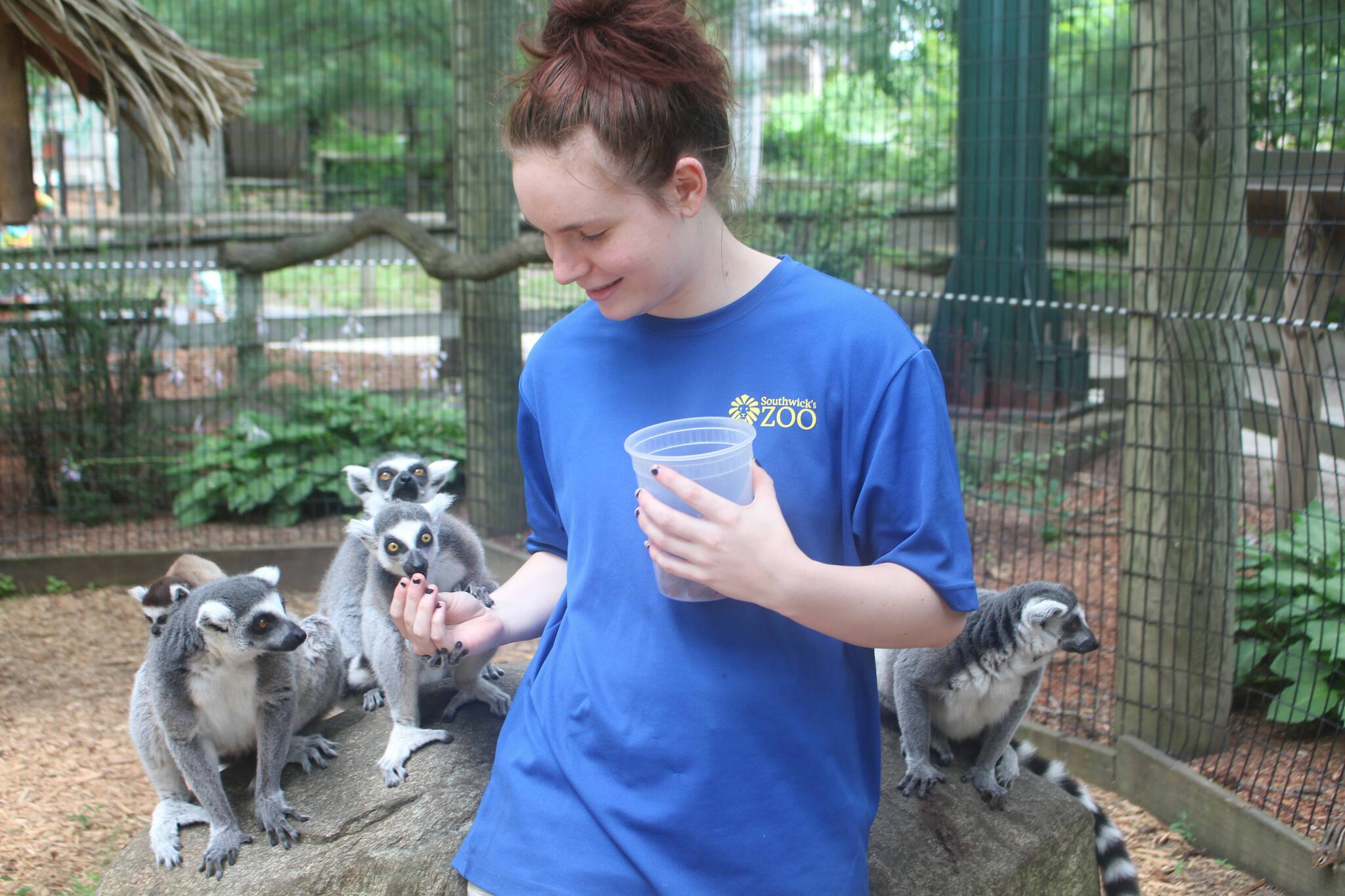Animal Behavior
Living things come in all sizes, from a single-celled organism to the great blue whale—and the study of animal behavior covers them all. The animal behavior minor brings in theory and concepts from both biology and psychology, giving you a broad look at the building blocks of life and a peek into animal minds. You’ll investigate an organism’s relationship with the world around it: how they find and defend resources, choose a mate and care for their young. Gain experience for careers in wildlife, conservation, animal training or research, or prepare for veterinary or graduate school.
For further information contact Kathleen Morgan at [email protected] or 508-286-3934.
Minor
- Animal Behavior Minor Minor
What education or training is needed for a career in animal behavior?
 Most scientists directly involved in the study of animal behavior work in one of four broad fields: ethology, comparative psychology, behavioral ecology, or sociobiology. These disciplines overlap greatly in their goals, interests, and methods. However, psychologists and ethologists are primarily concerned with the regulation and functions of behavior, while behavioral ecologists focus on how behavioral patterns relate to social and environmental conditions. Ethologists and behavioral ecologists are usually trained in departments of biology, zoology, ecology and evolution, entomology, wildlife, or other life sciences. Most comparative psychologists are trained in psychology departments. Animal behaviorists specializing in the study of human behavior are usually trained in anthropology, psychology, or sociology departments.
Most scientists directly involved in the study of animal behavior work in one of four broad fields: ethology, comparative psychology, behavioral ecology, or sociobiology. These disciplines overlap greatly in their goals, interests, and methods. However, psychologists and ethologists are primarily concerned with the regulation and functions of behavior, while behavioral ecologists focus on how behavioral patterns relate to social and environmental conditions. Ethologists and behavioral ecologists are usually trained in departments of biology, zoology, ecology and evolution, entomology, wildlife, or other life sciences. Most comparative psychologists are trained in psychology departments. Animal behaviorists specializing in the study of human behavior are usually trained in anthropology, psychology, or sociology departments.
Some jobs in animal behavior only require a Bachelor of Arts (B.A.) or Bachelor’s of Science (B.S.) degree. However, most careers in animal behavior require advanced degrees, sometimes a Master of Arts or of Science (M.A. or M.S.), but usually a Doctorate of Philosophy (Ph.D.) or Doctorate of Veterinary Medicine (D.V.M.). Earning advanced degrees requires a very good undergraduate background, a strong academic record, lots of motivation, and hard work.
Many colleges and universities worldwide offer graduate training programs in animal behavior. In order to become a strong candidate for admission to graduate school, completing an independent study project or obtaining some research experience as an undergraduate can be very helpful. A booklet detailing the current training programs in North America is available through the Animal Behavior Society.
Departments
Offered by the Biology, and Psychology departments.